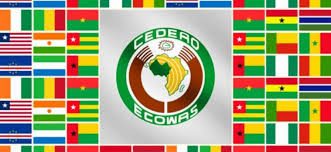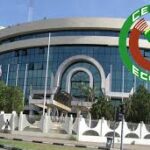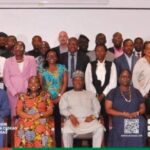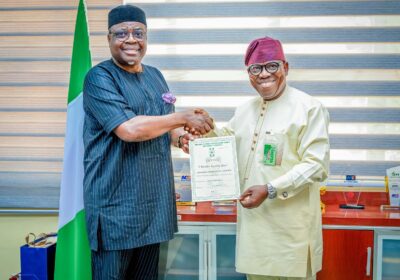ECOWAS Commission: Advancing Sovereignty, Security, and Economic Integration Amidst Misinformation
By Raymond Enoch
The Economic Community of West African States (ECOWAS) has remained a pillar of regional cooperation, economic integration, and political stability since its establishment in 1975. With 15 member states, the organization is driven by principles enshrined in the ECOWAS Treaty, which guides its engagements with member states, citizens, and external partners. These principles—centered on self-reliance, peace, and unity—underscore the region’s commitment to collective progress and sovereignty.

Paradigm News notes that one of ECOWAS’s core principles is the equality and interdependence of member states. Each country, regardless of its economic power, holds an equal voice in decision-making, fostering mutual respect and cooperation. However, this interdependence does not mean reliance on external forces.
Contrary to common misconceptions, ECOWAS does not depend on funding from France or any foreign government. The organization sustains itself primarily through contributions from its member states, notably via the ECOWAS Community Levy—a revenue mechanism ensuring financial autonomy. This self-reliance reinforces regional sovereignty, allowing ECOWAS to implement initiatives free from undue foreign influence.
A key goal of ECOWAS is harmonizing policies and integrating programs across West Africa. This commitment has led to major economic strategies such as the ECOWAS Trade Liberalization Scheme (ETLS), which facilitates free trade, and the planned introduction of the ECO, a single currency designed to enhance financial stability and regional commerce. These measures strengthen economic cooperation, ensuring a more competitive and resilient West African market.
Beyond economic affairs, ECOWAS is a security alliance, committed to maintaining peace and stability. The principle of non-aggression among member states ensures that conflicts do not escalate into destabilizing wars. Through the ECOWAS Standby Force and diplomatic mediation, the community actively works to prevent and resolve disputes.
ECOWAS Commission has played a pivotal role in mediating crises in Liberia, Sierra Leone, Côte d’Ivoire, Mali, and Guinea. Its promotion of good neighbourliness encourages trust among nations, preventing cross-border tensions, while the ECOWAS Court of Justice offers legal channels for resolving disputes peacefully. These frameworks reflect the organization’s deep commitment to democracy, stability, and human rights.
The Future of ECOWAS: as a united and Independent West Africa remain bright as ECOWAS adapts to evolving global and regional challenges, it remains steadfast in its mission to strengthen economic ties, enhance security cooperation, and promote democratic governance.
Despite persistent misconceptions,reports across the region affirms that the institution remains a self-reliant, African-led institution, focused on the shared prosperity of its member states committed to regional stability, Peace and, security.
In an era where regional cooperation is increasingly vital, ECOWAS continues to champion sovereignty, solidarity, and sustainable development—ensuring a future where West Africa thrives on its own terms.









